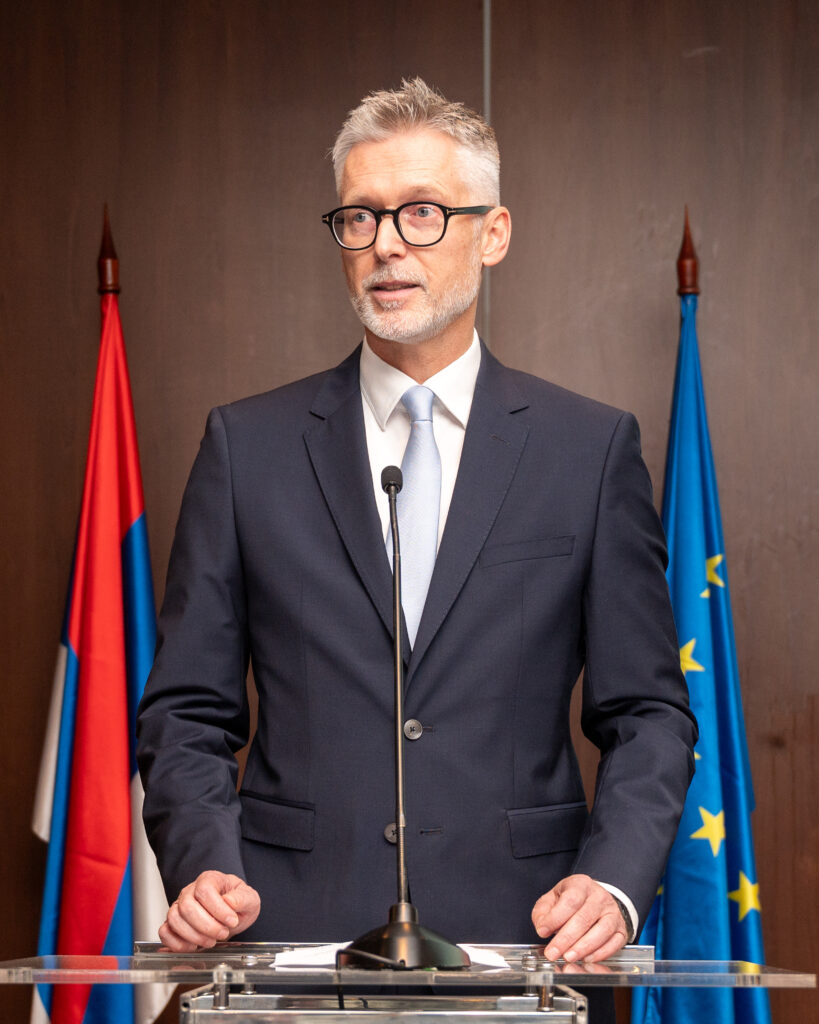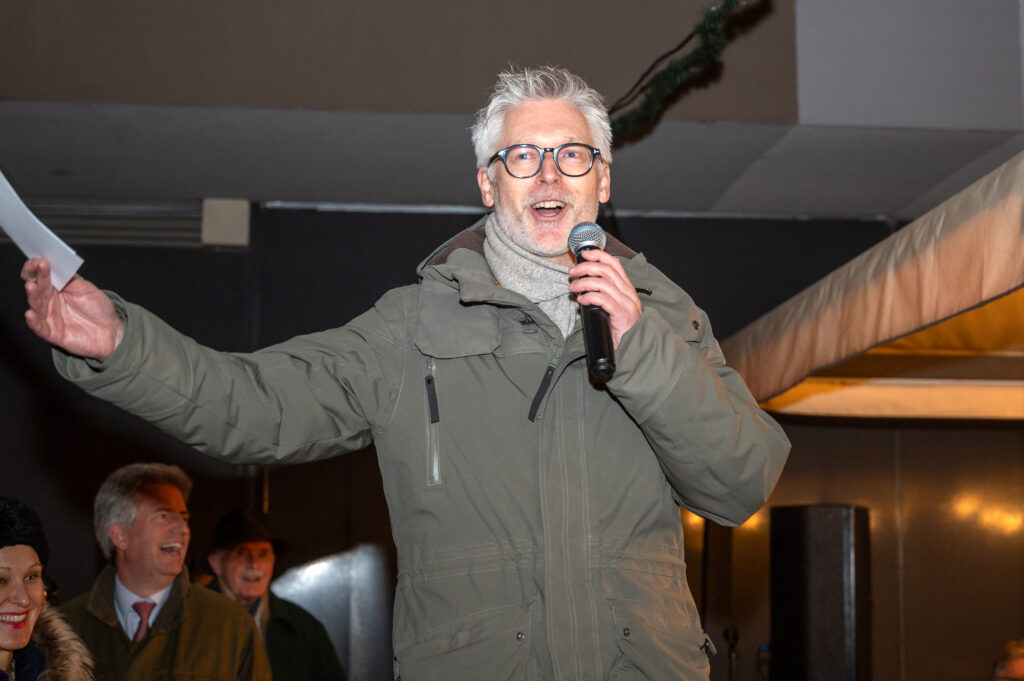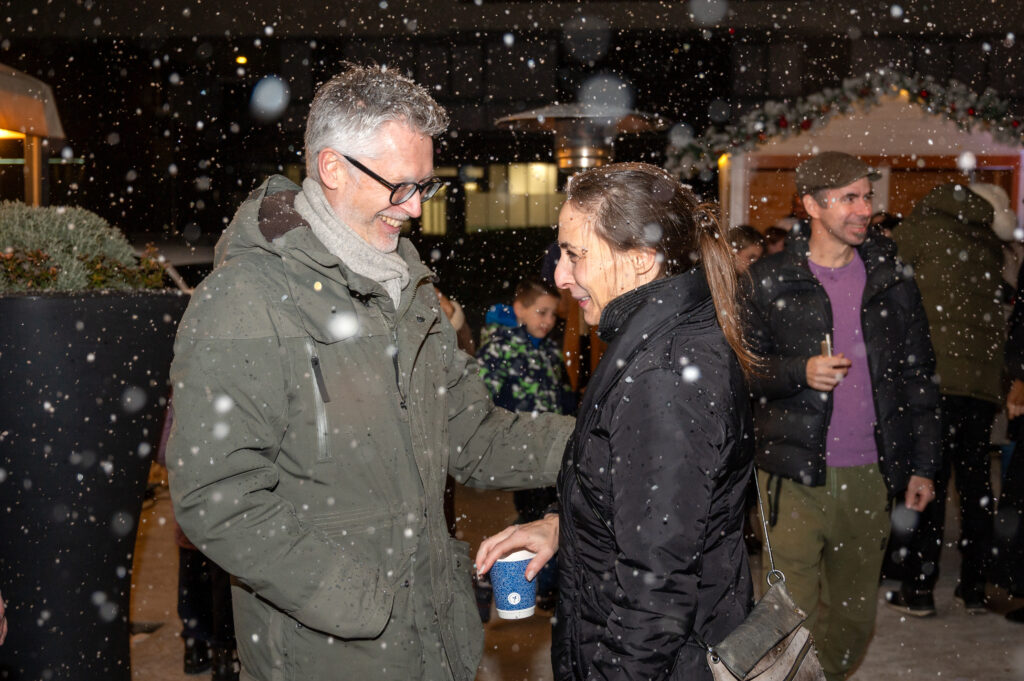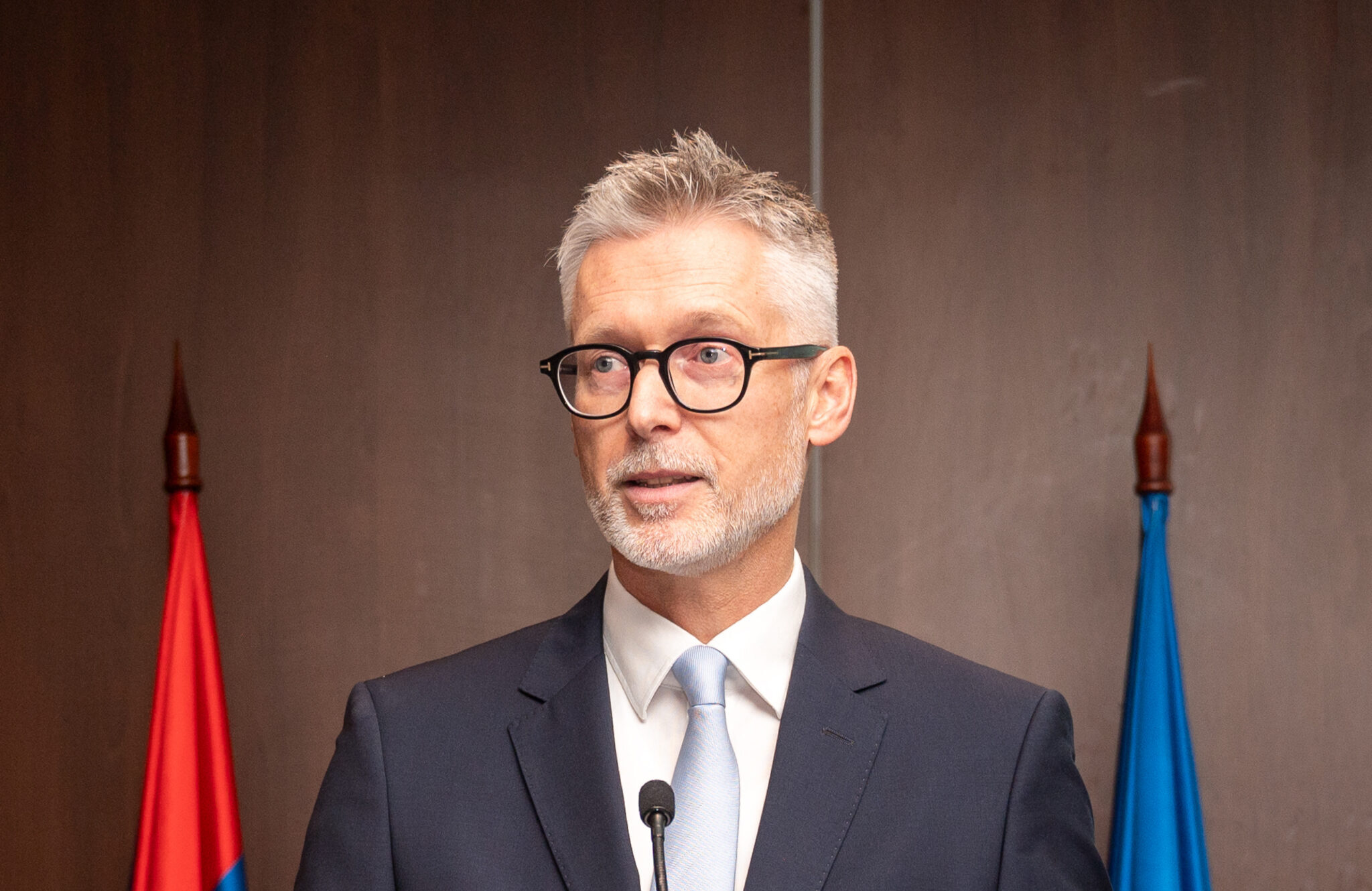A Partnership Rooted in History and Focused on EU Integration

By Dragan Nikolić
Austria and Serbia share a rich history and a dynamic partnership, with close cooperation in economics, culture, and Serbia’s EU integration. Ambassador Christian Ebner reflects on these ties and the vision for a stronger future.
How would you describe the current state of relations between Austria and Serbia, and what are the key areas of cooperation?
As Austrian Ambassador to Serbia, it is always a great pleasure to start an interview with this question, because it is no secret that our two countries enjoy longstanding and close relations built upon a rich and eventful common history, mutual respect and excellent people-to-people contacts due to a strong Serb community that is well integrated in the Austrian society. This is a solid basis for our fruitful cooperation in many areas, be it our support for Serbia´s accession to the European Union or our bilateral economic relations, where we are proud to be one of the top foreign investors in Serbia. In addition, our cooperation also extends to lesser-known areas, such as social and health insurance, judicial reform, and agriculture.
Austria is one of the largest investors in Serbia. What are the main drivers of Austrian investments here, and what sectors hold the most growth potential?
Our bilateral foreign trade has been developing well for decades, and in 2022 and 2023, the EUR 1 billion threshold could be exceeded. The market recovered very quickly after the coronavirus crisis, and in 2022, there was export growth from Austria to Serbia of 27% in 2022, but this could not be duplicated in 2023 and was lower than forecast at 4.5 %. Nevertheless, Austria was one of the few countries to increase its exports to Serbia in 2023, securing Serbia 30th place among Austria’s most important export markets. The half-year figures for 2024 show a slight weakening of this trend, so exports fell slightly by 2.6% compared to the first half of 2023. Whether this is also reflected in the full-year statistics remains to be seen. The traditionally strongest export goods to Serbia have changed slightly. These are machinery, electrical equipment, boilers, pharmaceutical products, tractors, plastics, and glassware. Austria mainly purchases electronic equipment and machinery, beds and lighting fixtures from Serbia, boilers, glass and glassware, soap, detergents and lubricants. Austria holds a good position in Serbia, as the country is the third largest foreign investor behind the Netherlands and China in terms of investment volume since 2000, with an investment volume of EUR 3.4 billion (as of 2023).
 How does the Austrian Embassy support cultural and educational exchanges between our two countries, especially considering that a large number of Serbs live in Austria?
How does the Austrian Embassy support cultural and educational exchanges between our two countries, especially considering that a large number of Serbs live in Austria?
As you can imagine, Austrian foreign policy generally puts a strong focus on cultural diplomacy. The Austrian Cultural Forum Belgrade was founded in 2001 as the Cultural Department of the Austrian Embassy in Belgrade. The Cultural Forum coordinates and implements Austrian cultural work in Serbia with the Austrian Institute, the Austrian Libraries and the university lecturers of the OeAD. It presents the creative aspects of Austria, whose achievements in art, culture, and science are built on tradition and continue to create innovations. At the same time, the Cultural Forum supports the exchange and networking of Austrian and Serbian creative artists, connects Serbian and Austrian scientists and academics, and assists in improving and expanding interinstitutional relations. In 2024, the Cultural Forum supported 61 cultural projects with a total of 145 events in Serbia in the fields of visual arts, music, literature, theatre, film, architecture, dance, new media and science as well as numerous digital formats. We are also proud of the significant number of Serb students in Austrian universities and faculties, and we see many of them becoming future leaders in responsible positions not only in Austria but also in Serbia and other places.
Our two countries enjoy longstanding and close relations built upon a rich and eventful common history, mutual respect, and excellent people-to-people contacts
Serbia’s EU accession process is ongoing. From Austria’s perspective, what are the most significant milestones Serbia needs to achieve to accelerate this journey?
Let me answer this question by first recalling that Serbia is part of Europe, geographically surrounded by EU Member States and EU candidate countries. We share a common history and a future defined by the opportunities and challenges we face together. This European perspective has already helped Serbia to achieve many political and economic reforms. In recent radical changes in the global geopolitical scene, we see a new dynamism in the enlargement process. The new Growth Plan for the Western Balkans will provide Serbia and the other Western Balkans partners with financial help to accelerate its socio-economic convergence with the EU, based on National Reform Agendas approved by the European Commission. We can encourage Serbia to follow its reform agenda and offer any help needed closely. At the same time, Austria fully supports the European Commission’s proposal to open Cluster 3 of the enlargement process. It is time to move ahead and allow for a new dynamism in other chapters and clusters while fully respecting the requirements of the so-called Fundamentals on the Rule of Law and the functioning of democratic institutions. With the announcement of President Vucic that Serbia has the strategic goal to fulfil all the criteria for EU membership by the end of 2026, we hope that even more progress can be achieved soon.
Gender equality is a cornerstone of EU values. In your view, how well do Serbian laws and societal practices align with EU regulations on gender equality, and where do you see room for improvement?
Equality between women and men is a common value of the European Union enshrined in the Lisbon Treaty. The EU has adopted significant legislation in gender equality, and Member States are obliged to implement these directives. Consequently, it is also an important responsibility of all candidate countries and is assessed by the European Commission in the yearly Country Reports. It says that the Law on gender equality and the Law on the prohibition of discrimination were aligned with the EU acquis in 2021 but need to be further aligned with European standards. In this regard, we very much value the work of the Commissioner for the Protection of Equality and are proud partners in many projects. Protection against discrimination is an ongoing task and benchmark for our societies that goes beyond the issue of EU membership.
 How can Austria and Serbia collaborate more effectively in the context of global challenges such as climate change and migration?
How can Austria and Serbia collaborate more effectively in the context of global challenges such as climate change and migration?
Illegal migration remains one of the biggest challenges for the European Union. Our trilateral cooperation between Austria, Serbia and Hungary has already shown some success. However, we are still affected by illegal migration via the routes through the Western Balkans. Our close cooperation, therefore, needs to be continued as the migration challenge can’t be addressed by any country alone. We appreciate the cooperation with Serbia in border management and the ongoing harmonisation of its visa regime with the EU acquis. Consequently, significant decreases in asylum applications from certain countries have been observed. Concerning climate change, I am proud to say that we are engaged in various projects financed by the Austrian Development Cooperation in the region. The most recent project under the title Greening the Western Balkans aims to improve the status of threatened biodiversity in the Western Balkans through enhanced planning, financing, implementation, and monitoring of the Green Agenda for the Western Balkans biodiversity pillar.
The European perspective has already helped Serbia achieve many political and economic reforms
What has been your most rewarding experience during your tenure as the Austrian Ambassador to Serbia?
I am currently in the midterm of my mandate and grateful for many things I could work on. I very much appreciate the cooperation of the Austrian Embassy with the Red Cross of Serbia, especially in the field of the challenges regarding long-term care of elderly people. Healthcare workers and family caregivers need support to do this difficult job. At the same time, patients need instruments to remain independent for longer. For that, we need to connect the public and private sectors and utilise the advantages of modern technologies. We participated in conferences organised by the Serbian Red Cross to share and discuss experiences with innovative companies that provide new technological solutions for the long-term care of patients.
What is your vision for the Austria-Serbia partnership over the next decade?
Sitting together at the same table as Member States of the European Union.








